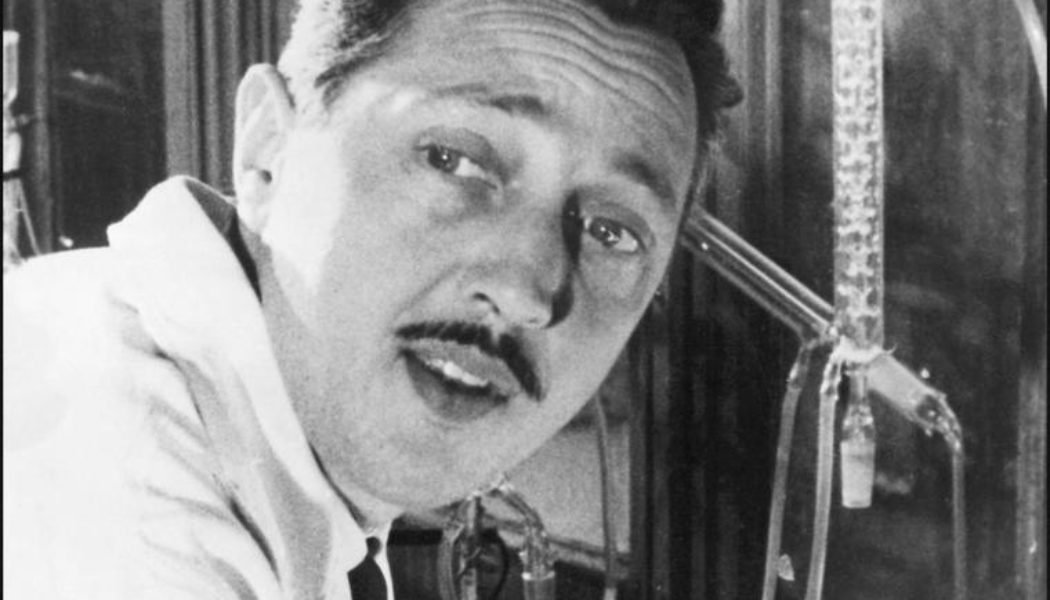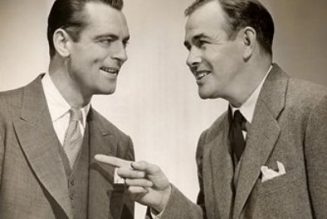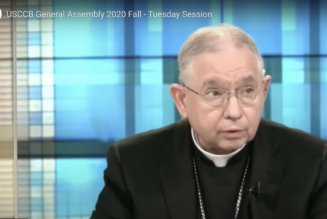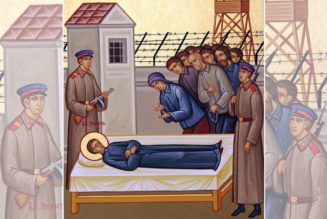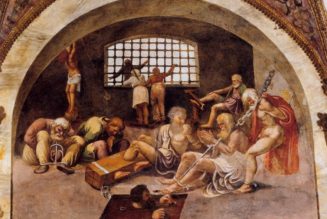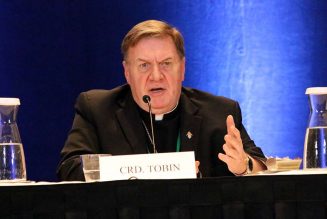
Signature appointments capture the essence of a pope.
As St. John Paul the Great had Cardinal Joseph Ratzinger for doctrine and Cardinal Francis George in Chicago, Pope Francis has Cardinal Victor Manuel Fernandez for doctrine and Cardinal Blase Cupich in Chicago. Such signatures, which are good subjects for handwriting analysis, reveal a great deal about the authors.
Another of John Paul’s signature appointments is being recalled in these days. At the Canadian March for Life last week in Ottawa, Auxiliary Bishop Yvan Mathieu of Ottawa dedicated his vigil Mass homily to a panegyric for the Venerable Jérôme Lejeune, French pediatrician and geneticist, who died on Easter Sunday 1994.
Dr. Lejeune, founding president of the Pontifical Academy for Life (PAV), was one of the key signature appointments of Pope John Paul II. The current PAV president, Archbishop Vincenzo Paglia, likewise reflects the priorities, preferences and pastoral heart of Pope Francis.
Bishop Mathieu took the 30th anniversary of Lejeune’s death as a propitious occasion to teach about the importance of his life. He died on April 3, 1994. The following day, John Paul wrote a lengthy message to Cardinal Jean-Marie Lustiger, archbishop of Paris, that eulogized his friend, the doctor known as the “father of modern genetics.” On his next visit to France, in 1997 for World Youth Day, Bishop Mathieu recalled that John Paul insisted on personally visiting the grave of his friend and fellow builder of the culture of life.
The most providential date of Lejeune’s life was not his Easter death, but May 13, 1981, when he had lunch with his papal friend. He returned to Paris later that afternoon to discover, upon landing, that John Paul was fighting for his life after being shot by Mehmet Ali Agca.
At lunch, John Paul and Lejeune had likely discussed two projects the Holy Father intended to announce that afternoon at the audience: a new Pontifical Council for the Family, and the John Paul II Institute for Study of Marriage and the Family. It was as though the attacks on human life that John Paul and Lejeune resisted made themselves manifest in the assassination attempt on the very day the new initiatives on the family were to be announced.
“If our Father in heaven called [professor Lejeune] from this earth on the very day of Christ’s Resurrection, it is difficult not to see this coincidence as a sign,” wrote John Paul in his message to Cardinal Lustiger. “As a learned biologist he took up the cause of life. In his field he was one of the world’s greatest authorities. Various institutions invited him to conferences and sought his advice.”
“He became one of life’s most zealous defenders, especially the life of the unborn,” continued John Paul. “Professor Jerome Lejeune was prepared to become a ‘sign of contradiction,’ regardless of the pressures exerted by a permissive society or the ostracism to which he was subjected. Today we mourn the death of a great 20th-century Christian, a man for whom the defense of life became an apostolate.”
Lejeune had discovered in 1958 the genetic cause of Down syndrome, namely that in the DNA’s 21st set there were three, rather than two, chromosomes. This breakthrough in genetics made Lejeune one of the most celebrated medical researchers in the world. In 1962 he was recognized by receiving the Kennedy Prize directly from JFK himself.
But as abortion laws were liberalized in the 1960s and ’70s, Lejeune’s advances were welcomed by those who saw an opportunity to eliminate before birth those babies diagnosed with genetic abnormalities. Today the majority of Down syndrome diagnoses in utero end in abortion. Lejeune was horrified that his research in service of health could become a death sentence.
“We hate sickness, but love the sick,” he would say. How could love for the sick lead to their termination?
Lejeune became a pro-life champion. The French medical and cultural establishment punished him. His research money was taken away and academic appointments refused. He was never given the award his research deserved, the Nobel Prize for Medicine.
Lejeune’s research and deep Catholic faith brought him into the circle of a certain cardinal from Krakow, and eventually to the dining room of the papal apartment on May 13, 1981.
John Paul, who taught that there were no coincidences in the light of Providence, thus enlisted his guest for pranzo on that infamous day into his great battle for life. He would entrust to Lejeune the creation of the PAV. Lejeune drafted the founding statutes, which required all members to take an oath as “servants of life” to uphold the sanctity of life.
The PAV was established on Feb. 11, 1994, feast of Our Lady of Lourdes, patroness of the sick. John Paul appointed Lejeune to be the founding president. His tenure was short; he died less than two months later.
The PAV, which John Paul said “owes its existence largely to [Lejeune]” was a signature initiative of John Paul. It has not fared well in recent years. The PAV was founded between the encyclicals Veritatis Splendor (1993) and Evangelium Vitae (1995), reflecting the clarity of that theological and moral vision.
Pope Francis reformed the PAV in the months after Amoris Laetitia (2016) and a different vision prevailed. The oath for members was dropped and the entire membership reconstituted to include those not committed to the sanctity of life. Under Archbishop Paglia’s presidency, the PAV has occasionally confused, rather than clarified, Church teaching on contraception, abortion and euthanasia. Archbishop Paglia himself has been at times a distraction to the cause of life, unlike Lejeune, the great doctor of life.
Thirty years after Lejeune’s death, though, it is his memory which continues to inspire, as was the case at the Ottawa March for Life. His cause for canonization is open and in 2021, Pope Francis approved the decree of his “heroic virtues.” Now “Venerable,” he could be beatified if a miracle is found to have been worked through his intercession. Should it come, it would be most fitting if it were a genetic healing in the womb.
Spark, the children’s division of Word on Fire ministries, has recently published a book entitled Jérôme Lejeune: The Saintly Geneticist. Some of the children who read it will have parents who prayed to Dr. Lejeune for the gift of children, or to bring a difficult pregnancy safely to delivery. It’s likely the only children’s book to include the words “chromosomes” and “pediatrician.”
